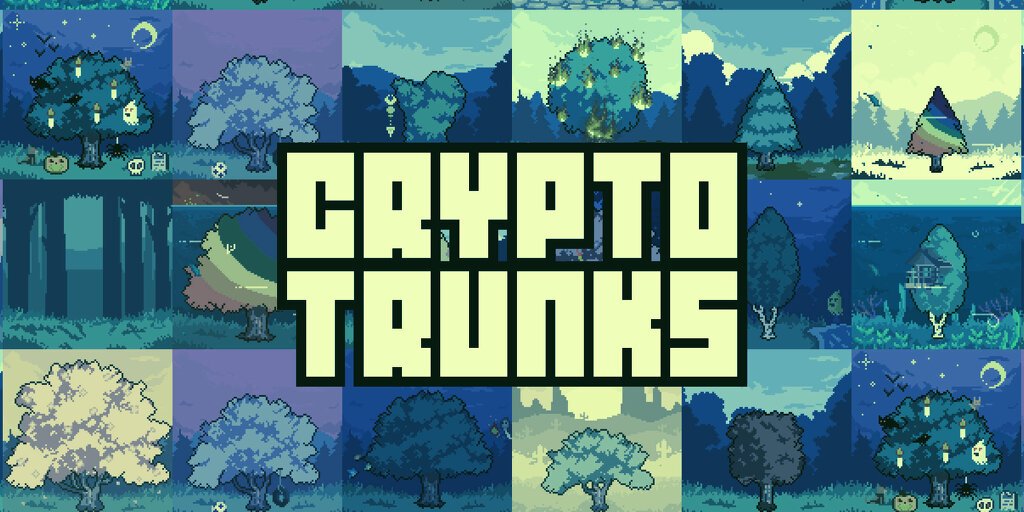An NFT project that grows a pixelated tree in accordance with the carbon footprint of your crypto trading was paused just two days after launch when Ethereum’s exorbitant gas fees turned the project into an environmental disaster.
“Tens of dollars for the network cost of some free art is cool, hundreds of dollars is bonkers. Better to pause and wait for things to cool off,” Will, the pseudonymous developer of CryptoTrunks, told Decrypt. Gas fees cooled down about an hour later; the developers have since resumed the project.
CryptoTrunks, a riff on CryptoPunks, refashions a trader’s transaction history into an illustration of the environmental damage caused by cryptocurrency mining. The larger the tree, the more a trader has warmed the planet. Starting Friday, users could grow one of 19,500 trees for free—all they had to do was pay Ethereum’s ever-changing gas fee.
While the crypto market turns to ashes, CryptoTrunks are spreading like wildfire; so far, users have minted 7,657 generative trees and a further 645 “genesis trees” (a collection of a further 1,500 trees designed by CryptoTrunks’ artist-in-residence, Reuben). So popular is CryptoTrunks, that one power-user is now the fifteenth-largest gas spender on Ethereum—just below cryptocurrency exchange BitMart.
I just claimed my free trunk at @thecryptotrunks and also minted 10 Genesis trunks, and some generated trunks. Obviously my tree tier was ancient because of my transaction history. The larger your #ETH carbon footprint the older the tree you generate. #NFTs #Carbonawareness … pic.twitter.com/hQSo2ItQho
— Pranksy
(@pranksyNFT) May 23, 2021
However, CryptoTrunks run on the same gas-guzzling blockchain as all the other NFTs that eco-activists warn are terrible for the environment. Today, gas fees were so high that each tree produces about 250 kilograms in carbon emissions, according to carbon calculator Offsettra—the equivalent to an hour of flying as a passenger on a commercial airliner.
Reuben, who created the protocol along with Will, told Decrypt that the pair temporarily paused the project on Sunday evening to wait for gas fees to cool off. “Tongue-in-cheek as the project is, we are still very mindful of our carbon footprint,” Reuben said.
NFTs, as Will pointed out, have become “kind of a boogeyman” for environmentally-conscious NFT collectors, and the runaway success of another NFT project is unlikely to help. But what better way to lure traders to the confession booth than with a shiny new NFT?
Pausing the protocol also cuts costs. CryptoTrunks foots the bill for the server costs and for the calculations necessary to mint each tree—even the free ones. The pair paused the protocol when standard gas fees rose above 500 gwei, and resumed about an hour later when fees fell to 150 gwei.
The pair are working with Offsetra and Carbon.fyi to turn CryptoTrunks into a carbon-neutral or carbon-negative project. They plan to donate some of the proceeds from genesis trees to the Bull Run project, a reforestation program in Belize.
So far, CryptoTrunks has certainly spread its message, if all too well. “We’ve had a few people come out and say that our project is rallying Crypto Twitter together at its worst moment, which has been an incredible honor,” said Reuben.




















